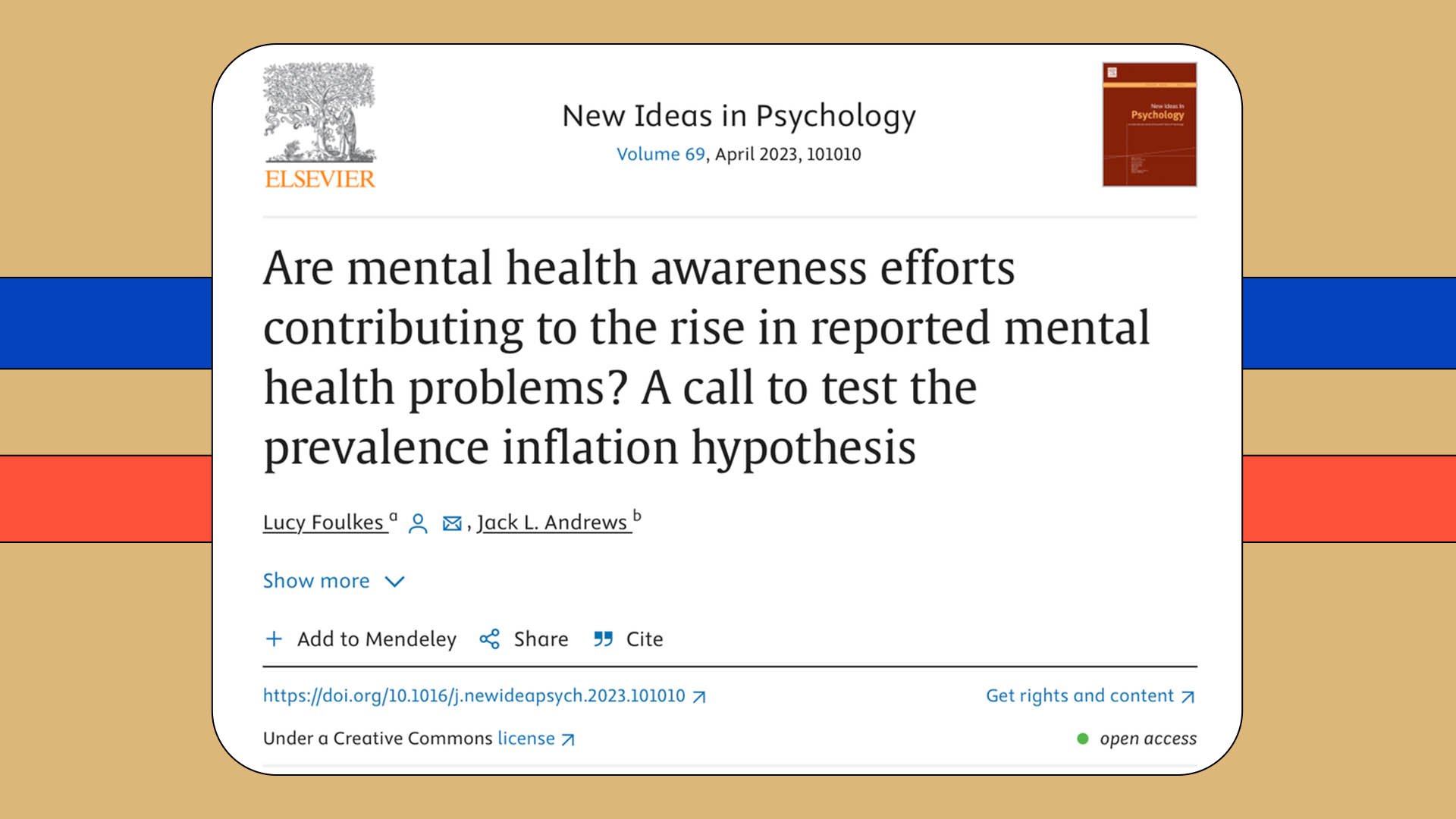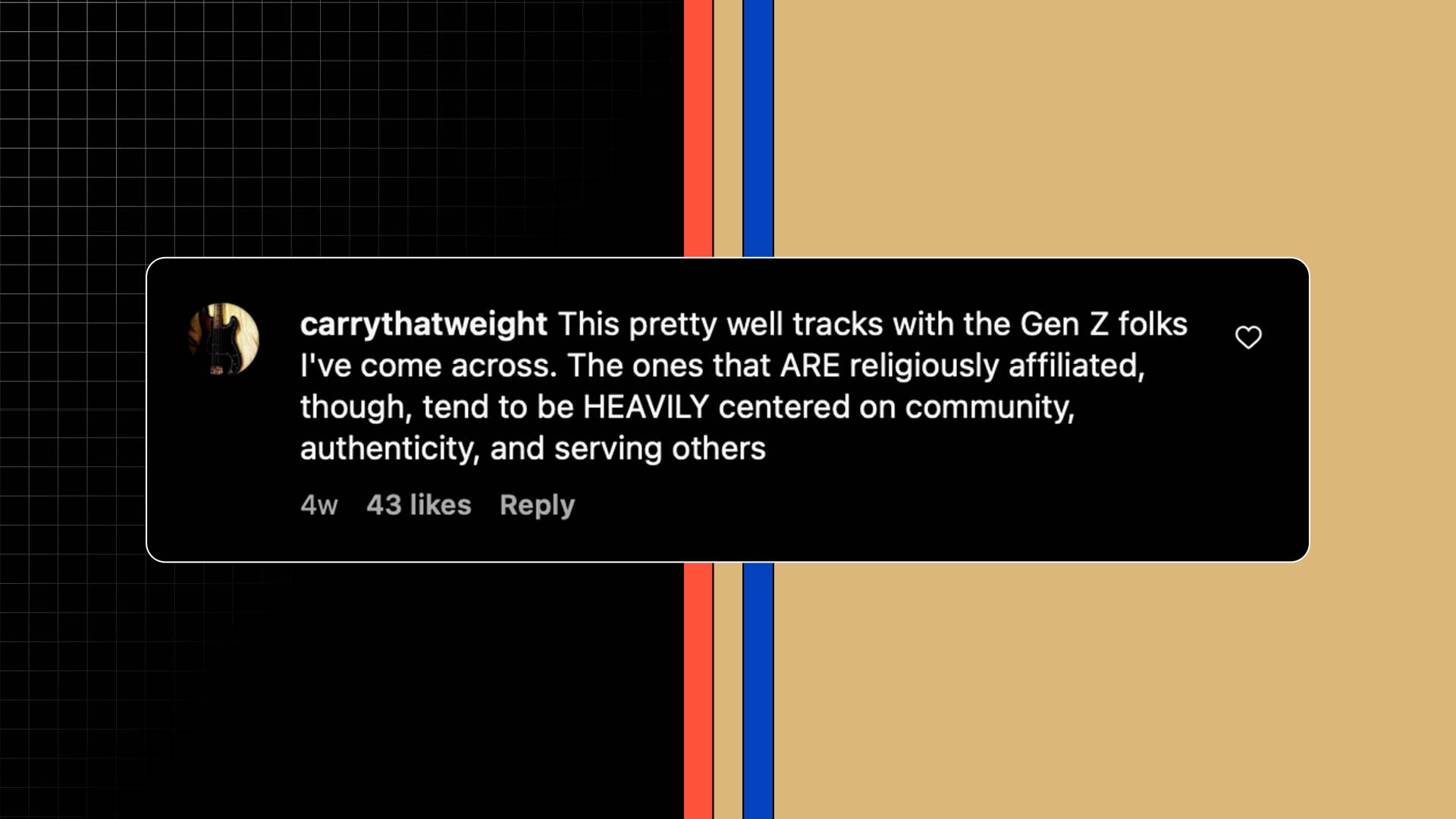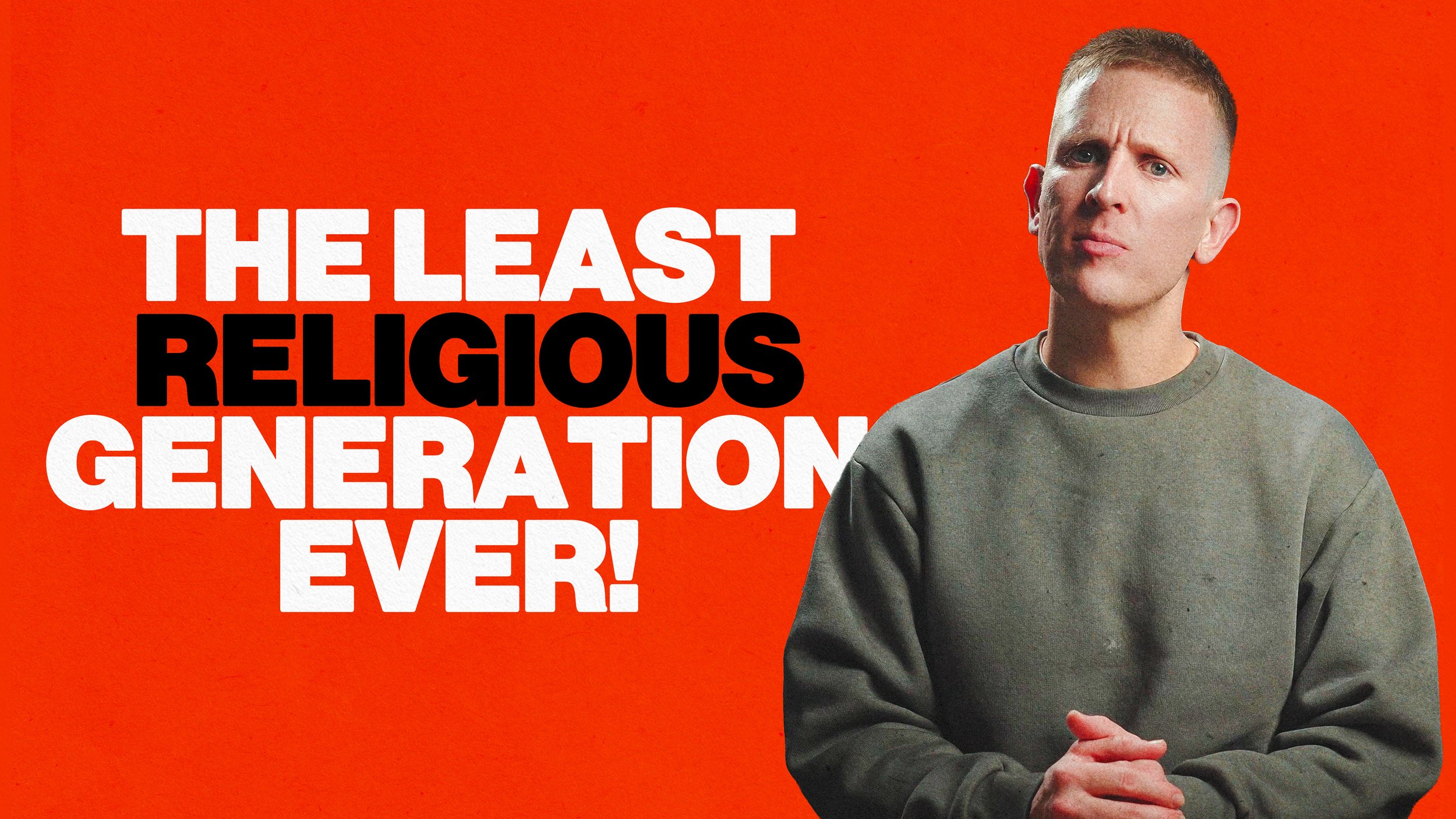The Ultimate Guide To Gen Z For Churches
Gen Z are those born between 1996 and 2010.
Another label for this generation? Zoomers.
Here’s what your church needs to know about them.
Religious Trends in America
We'll start here: Gen Z is the least religious generation in American history.
Thanks to Ryan Burge for this graph and data. He's got a great Substack, which you can find at @ryanburge.
The definition in this chart for non-religious is those who indicate that their present religion is atheist, agnostic, or nothing in particular.
In 2016, 39% of Gen Z said they were not religious.
That number jumped to 45% in 2020.
And 48% in 2022.
Burge goes on to say, "It seems statistically justifiable to say that by the time the United States has another presidential election, half of Generation Z will identify as atheist, agnostic, or nothing in particular." 1
But did you notice what else was evident on that chart?
Yes, Gen Z is becoming less religious each year - but so is every other generation.
Boomers, Gen X, and Millennials are seeing the same trends.
It's not fair to say this is unique to Gen Z, even if they see it in the greatest concentration.
Because this is a trend all across America.
Now, here's what's interesting: beliefs differ from involvement.
Because it’s not Gen Z that is the least active religious generation, even if they are the least religious overall in terms of what they believe.
Care to guess which generation is the least active? That award goes to Gen X.
That's right. Both Millennials and Gen Z attend church more frequently than Gen X.
To quote Burge again: “Many of Gen X are reaching their peak in personal income and are being tapped to be leaders in all aspects of society. Yet, they are clearly not filling the churches. That could open the door for Millennials and Gen Z to step up sooner for leadership roles.”
Free Bonus
Click below to download the Church Social Media Policy PDF – share it with leadership and get everyone on the same page.
Download Church Social Media Policy

Generation Research & Its Pros and Cons
Before we get any deeper into learning about Gen Z and what makes this new crop of humans unique, it's essential to provide a bit of reflection on this kind of discourse.
Because the idea of generational research and separating age demos strictly into camps with names has its problems.
This comes from Pew: “Generational research has become a crowded arena. The field has been flooded with content that’s often sold as research but is more like clickbait or marketing mythology. There’s also been a growing chorus of criticism about generational research and labels in particular. The trivial assignment of characteristics to age cohorts is misleading and can lead to generation-bashing and finger-pointing. We’ll only do generational analysis when we have historical data that allows us to compare generations at similar stages of life." 2
This is a helpful reminder of the merits and weaknesses of such commentary.
Stats on their own are not infallible.
Gen Z: The Most Educated Generation Yet?
Let's learn a little more about Gen Z now.
Gen Z already makes up roughly 20% of America's population size.
Meaning there are about as many Gen Z'ers as there are Millennials, Boomers, and Gen X'ers.
Gen Z is also on track to be the most educated generation yet.
They are less likely to drop out of high school and more likely to be enrolled in college than the generations that came before them.
Gen Zers are also more likely to have a college-educated parent.
In 2019, 44% of Gen Zers ages 7 to 17 lived with a parent with a bachelor’s degree or more, compared with 33% of Millennials when they were the same age.
That's a big jump for one generation.
Side Note:
(Did you notice we're taking cues from Pew -comparing different generations at similar stages of life- because this is their data? 3 ) So, not Millennials now vs. Gen Z now. But Gen Z now vs. Millennials at that same age.
Gen Zers are also less likely to be working than previous generations when they were teens and young adults.
Only 18% of Gen Z teens were employed in 2018, compared with 27% of Millennial teens in 2002 and 41% of Gen Xers in 1986.
And if you compare older ages (not teens but young adults), 62% of Gen Zers were employed in 2018, 71% of Millennials, and 79% of Gen Xers were working when they were a comparable age.
And that tracks.
If more of the generation is pursuing higher education, fewer would be in the workforce at that age because they're still in school.
However, it also looks like fewer teens have part-time jobs in high school.
Which I find interesting.
The Mental Health Crisis of Gen Z
Let's talk about the overall well-being of this younger generation.
Because Gen Z is staring down a mental health crisis.
But probably not the kind you’re thinking.
According to the Global Web Index, Gen Z is more likely than other generations to report having a mental health condition, and almost 3 in 10 say they’re prone to anxiety - a higher proportion than any other age group.
These increased anxiety levels are partly influenced by social media - which we'll get to in this blog.
The cost of living is frequently cited as well.
But another contributing factor is beginning to emerge…what some doctors call Prevalence Inflation.
The peer-reviewed scientific journal New Ideas In Psychology published a thesis that said it this way:
The Good: Mental health awareness efforts are leading to more accurate reporting of previously under-recognized symptoms.
The Bad: These awareness efforts are leading some individuals to interpret and report milder forms of distress as mental health problems.
The Ugly: This leads some individuals to experience a genuine increase in symptoms because labeling distress as a mental health problem can affect self-image and behavior in a way that is ultimately self-fulfilling.
It’s a story as old as time. Because it’s the human condition at work, right?
We overcorrect and swing from one end of the pendulum to the other.
Solutions for this kind of thing are, of course, messy.
But this is where every church can play its part.
How The Uniqueness of The Church Provides a Solution
You and I know the wisdom of Scripture.
And the importance of genuine relationships.
The American Journal Of Lifestyle Medicine also affirms the wisdom of Scripture: “Social connection is a pillar of lifestyle medicine. Humans are wired to connect, and this connection affects our health.”
The Church, as a cultural institution, is unique.
Because it’s one of the only places where people of all ages, ethnicities, and socio-economic backgrounds elect to meet around a shared purpose.
What is one way we can help this younger generation navigate the challenges of life? The Body Of Christ as medicine. For a suffering world.
Is Anyone Succeeding?
In a previous post on my Instagram - @bradyshearer - I talked about Gen Z and how they were the least religious generation in American history.
Josh jumped in to say, "As someone who is at a church with 95% Gen Z as our attendees this isn't true everywhere."
To which I responded, "Nothing is true everywhere. The more interesting question there is - what might your church be doing differently (if anything)? And what are you learning about the Gen Z in your church that is different from other age groups?"
Josh replied with some great insights.
He went on to say the following: "So one thing we have is the advantage of being in Downtown Madison, WI. We are about 10 minutes from the University of Wisconsin. We also have a young female lead pastor along with a very non traditional space. We are big on community and meeting the students where they are for the 4 years we have them. Our church is refreshing to a lot of them as it isn't their parent's church, and it's a community in a new city away from home.
We also have many students who have chosen to stay in the area because they love the community we've created so much. You can check us out @newculturechurch to see what we are doing. We keep it light on programming: Sundays are church at 4:30pm, Tuesdays are communities based on location in the city, and then we have a Slack where people can post about opportunities to hang out or work from coffee shops.
Another thing we've done is our last service of the month we host what we call Table Nights. We just gather around the table and eat dinner together after worship. It builds community and is an easy way to get connected with people you may otherwise never know. We are also partnered with many community organizations. So when they have events, they invite us to be a part."
These are really great insights from serving in what Josh calls a big city with very little Jesus.
Free Bonus
Click below to download the Church Social Media Policy PDF – share it with leadership and get everyone on the same page.
Download Church Social Media Policy

Insights from New Culture Church
Here's what stands out to me:
Female lead pastor
Non-traditional meeting space
Relative lack of programming
Community involvement
That immediately suggests to people that this faith community might be different from what they're used to, without ever actually saying it out loud.
Show, don't tell.
Why might this kind of thing matter?
It gives people a chance to evaluate faith separate from what they think they know or previous experiences they may have had.
Which can be tremendously powerful at that age.
Because right as you're entering adulthood is often the peak of The Dunning-Kruger Effect as it relates to your worldview.
The Dunning-Kruger Effect is simply explained as "the less you know, the more confident you are."
So you're entering your 20s and think you have it all figured out.
Meaning you need to be given an apparent reason to re-evaluate those beliefs - so if you come in touch with a faith community that goes against everything you thought church had to be, that can be powerful.
Especially when the church isn't telling you they're different but actually showing you.
Gen Z + Social Media
Alright, let's get to social media now.
If you're looking for a deeper dive on this, check out the article I did a couple of weeks ago: Dear Church, Beware This TikTok Trend.
Here are a few of the more important data points from that blog:
Yes, Gen Z spends a crazy amount of time on social:
41% of their online time is now social media time, which is an all-time high according to the Global Web Index. 4
For specific numbers, Data.ai analyzed that the average global TikTok user spends almost a full day (23.6 hours) each month using the platform.
Meanwhile, Sensor Tower’s figure suggests that TikTok users spend more than 48 hours (two whole days per month) using TikTok, which is obviously even higher.
Now, that's all TikTok users, not just Gen Z, so that will include a big chunk of Millennials, but of course, TikTok skews younger and is Gen Z's social platform of choice alongside Instagram and YouTube.
And here's the thing: Social media is changing.
You might think, "24-48 hours per month is insane. How could anyone spend that much time watching...cat videos?"
But think about it this way: Google said that instead of search engines, 40% of Gen Z will use TikTok and Instagram for their search.
Not to mention, commerce and brand discovery are driven primarily by social media for younger generations.
Social is also entertainment. It's a replacement for TV and movies.
It's keeping up with friends and family.
It's education.
Imagine you're 21 years old again, doing laundry for the first time or trying to figure out how to cook rice for the first time…
You're going to TikTok to learn these things.
I said it in that blog, and this is the core thesis that matters:
Yes, 5-10% of waking time spent on TikTok is alarming, but most people evaluate that stat in light of what social media was ten years ago. Which means you're not getting an accurate picture of what's happening today.
Social media is just the Internet now. They're synonymous.
Social media time is finding recipes.
It's keeping up with the news.
Getting inspiration for outfits.
Tracking with friends and family.
Searching for dinner spots this weekend.
Planning trips.
It's replacing time spent by previous generations watching sports and linear television.
Social is becoming increasingly ingrained into the fabric of our lives because its definition is expanding.
A Positive Take on The Least Religious Generation
I wanted to surface some comments from you on my recent posts about Gen Z.
@carrythatweight said: "This pretty well tracks with the Gen Z folks I've come across. The ones that are religiously affiliated, though, tend to be HEAVILY centered on community, authenticity, and serving others."
So, if you're looking for a positive interpretation of the 'least religious generation in American history' - this is it.
Cultural Christianity in America is dying.
And as a Canadian, I come from that reality in my country, and it's not so bad.
Because people don't go to church just because it's the thing you do.
That's not a thing.
So, the people that do go to church go for a reason.
Because they care.
Perhaps Gen Z is the least religious overall, but might that mean that we've simply dropped the "Christians" who identified in name only, and the ones that remain are the truly committed ones?
It's undoubtedly not that black and white, but perhaps there's some truth there.
Free Bonus
Click below to download the Church Social Media Policy PDF – share it with leadership and get everyone on the same page.
Download Church Social Media Policy

Call It What It Is
And then let's look at this sobering comment from Angie: "Everyone focuses on Gen Z being a “ripe mission field,” instead I propose they are a mirror holding up a reflection back to the church. It’s not Gen Z that needs “saving,” it’s the Church."
The reality is every generation is becoming less religious.
And what do older generations tend to do?
We look down on the young people. We blame them for society's ills.
We openly discuss their apparent faults as a generation and how the country is doomed when they inevitably ascend to power.
Or if we're not quite that direct about it, we hint at it.
But what if we put that mirror on ourselves? What has The Church in America and the West contributed to this generation-wide apathy towards our faith?
If this is the current landscape, what will future generations look like? What do our communities look like when our faith's penetration into the culture is smaller than now?
These are tough questions but important ones to ask.
If you're looking for a deeper dive into how to use social media to reach this next generation, the next blog you should read is the one I previously mentioned: Dear Church, Beware This TikTok Trend.
And thanks, as always, for your time, attention, and trust.













![My Favorite Church Design Trends [Spring 2024]](https://images.squarespace-cdn.com/content/v1/651c5ee7bbb58f6bf652c2cd/1714483914980-E7FC03CT3I3VZRRU7MP9/Thumbnail.jpg)

